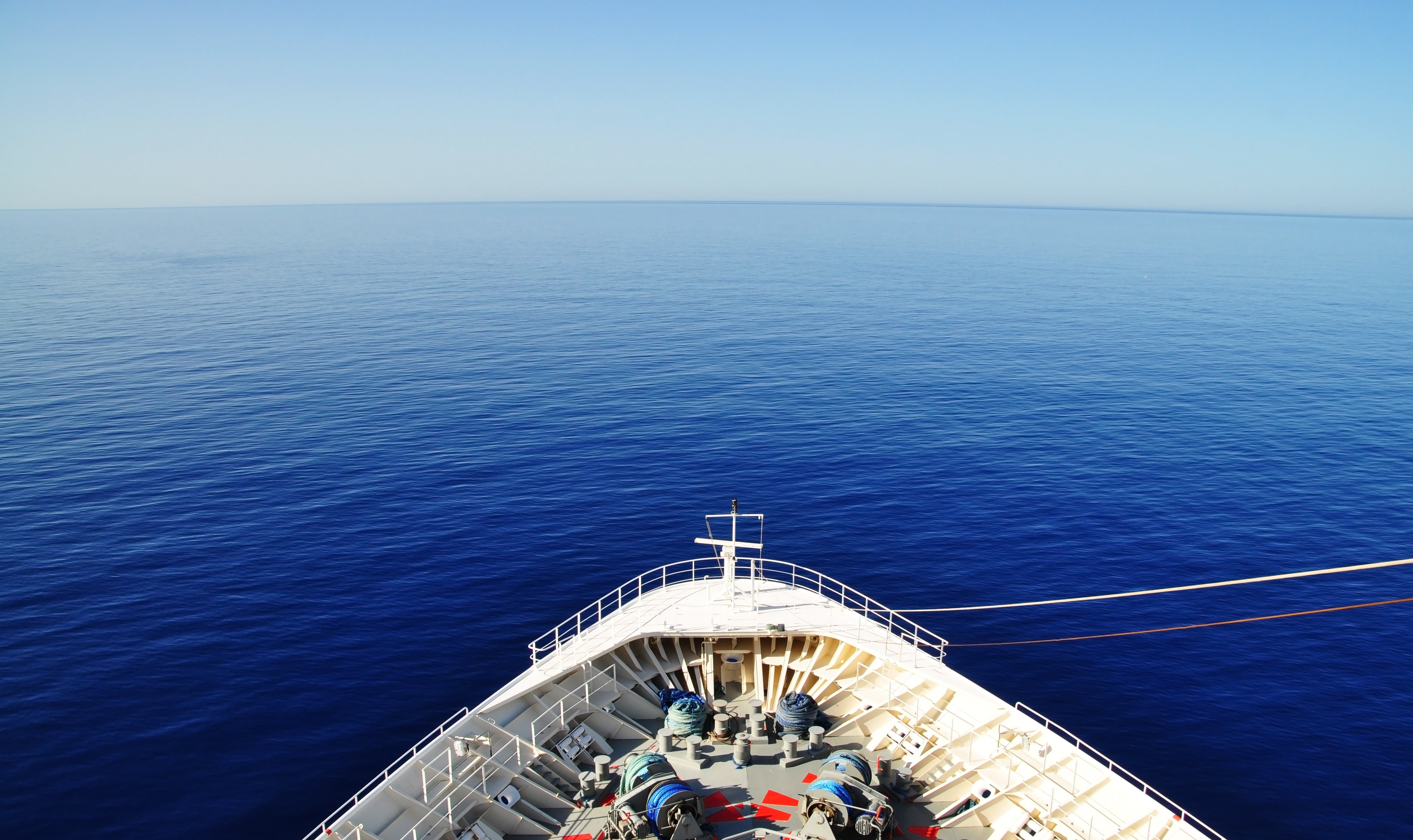OUTLINE
- The Club has revised the Clean Cargo Clause and the Dry Cargo Clause wordings for the 2013 policy year.
- The new clauses allow returns of premium, if a ship carries only non-persistent oil for a period of at least 30 consecutive days.
- These clauses relate to operators of product and/or chemical tankers and ore-bulk-oil carriers (OBOs).
TO THE MEMBERS OPERATING PRODUCT AND/OR CHEMICAL TANKERS AND/OR OBOS
NEW CLAUSES TO REPLACE CLEAN CARGO CLAUSE & DRY CARGO CLAUSE
The system for charging International Group reinsurance costs applicable to tankers which switch during a year between carrying clean and dirty cargoes, or to OBOs which switch between wet and dry cargoes will be changed for the 2013/14 policy year for all International Group clubs. The change will result in potential reinsurance cost savings for Members whose ships carry non-persistent oil, allowing returns of premiums if the ship is "clean" for a period of 30 or more days.
Under the new system, if a ship carries only non-persistent oil (or clean products) for one or more periods each of at least 30 consecutive days, it can be rated as a "clean" tanker for the periods of "clean" trading. If a ship carries non-persistent oil for a period of less than 30 consecutive days, then the ship will continue to be rated as a "dirty" tanker. "Clean" means actually carrying clean cargoes, i.e. it does not include a period in ballast between "dirty" voyages, and a "clean" tanker is defined as: a tanker which is not carrying persistent oil or its residues (other than slops). The same principles will apply to wet trading for OBOs.
The former clauses under the names of "Clean Cargo Clause" and "Dry Cargo Clause", which were published in the Rules within the section "Addendum for Owners", have been revised for the 2013 policy year and replaced with the clauses referred to below:
Two new clauses to replace the former "Clean Cargo Clause"
For Members that enter their product and/or chemical tankers at the beginning of the policy year on the basis that they will be carrying persistent oil cargoes, and the Members that enter their product and/or chemical tankers at the beginning of the policy year on the basis that they will be carrying cargoes other than persistent oil or its residues (other than slops), the following clauses replace the former "Clean Cargo Clause" and will form part of their terms of entry for the 2013/14 policy year, as the case may be.
Clean tanker - persistent oil basis
- It is hereby agreed that the ship will carry persistent oil as cargo during the policy year. Notwithstanding the foregoing, any ship insured hereunder that carries a non-persistent oil cargo for a period of thirty or more consecutive days (such period(s) being computed from the day on which a non-persistent cargo is loaded until the day the next persistent oil cargo is loaded, one day only being excluded) shall be entitled to receive a return of Mutual Premium for such period(s) upon application to the Managers. No such return shall be made by the Association unless the Managers receive written notification within three months of the end of the policy year in which the returns are claimed.
- For the purposes of this clause, "Persistent Oil" is all persistent hydro-carbon mineral oils other than those falling within the definition of "Non-persistent Oil" set out below:
- "Non-persistent Oil" is oil which consists of hydro-carbon fractions:
a) at least 50% of which, by volume, distils at a temperature of 340 degrees C and
b) at least 95% of which distils at a temperature of 370 degrees C when
tested by the ASTM Method D 86/78 or any subsequent revision thereof.
Clean tanker - non-persistent oil basis
- It is hereby agreed that the ship will carry non-persistent oil as cargo during the policy year. Notwithstanding the foregoing, any ship insured hereunder that carries a persistent oil cargo at any time during the policy year shall be held covered, provided the carriage of such cargo is promptly declared to the Managers in any event no later than one month from the date of the completion of the carriage and an additional Mutual Premium as specified by the Managers is paid for the period.
- If the Owner fails to notify the Managers in accordance with paragraph (1) above, the Owner shall cease to be insured by the Association in respect of this ship with effect from the date of the commencement of loading persistent oil as cargo (the date of cessation). The terms of Rule 28(b) shall apply. Provided always that the Directors may in their discretion and upon such terms as they think fit reinstate the entry of the ship or admit in whole or in part any claim in respect of the ship for which the Association is not liable by virtue of the insurance having ceased in accordance with this paragraph (2).
- For the purposes of this clause, "Persistent Oil" is all persistent hydro-carbon mineral oils other than those falling within the definition of "Non-persistent Oil" set out below:
- "Non-persistent Oil" is oil which consists of hydro-carbon fractions:
a) at least 50% of which, by volume, distils at a temperature of 340 degrees C and
b) at least 95% of which distils at a temperature of 370 degrees C when
tested by the ASTM Method D 86/78 or any subsequent revision thereof.
Two new clauses to replace the former "Dry Cargo Clause"
For Members that enter their OBOs at the beginning of the policy year on the basis that they will be carrying persistent oil cargoes, and for Members that enter their OBOs at the beginning of the policy year on the basis that they will be carrying dry cargoes and/or non-persistent oil as cargo, the following clauses replace the former "Dry Cargo Clause" and will form part of their terms of entry for the 2013/14 policy year, as the case may be.
OBOs - persistent oil basis
- It is hereby agreed that the ship will carry persistent oil as cargo during the policy year. Notwithstanding the foregoing, any ship insured hereunder that carries dry cargo and/or non-persistent oil as cargo for a period of thirty or more consecutive days, (such period(s) being computed from the day on which a dry cargo or non-persistent oil is loaded until the day the next persistent oil cargo is loaded, one day only being excluded) shall be entitled to receive a return of Mutual Premium for such period upon application to the Managers. No such return shall be made by the Association unless the Managers receive written notification within three months of the end of the policy year in which the returns are claimed.
- For the purposes of this clause, "Persistent Oil" is all persistent hydro-carbon mineral oils other than those falling within the definition of "Non-persistent Oil" set out below:
- "Non-persistent Oil" is oil which consists of hydro-carbon fractions:
a) at least 50% of which, by volume, distils at a temperature of 340 degrees C and
b) at least 95% of which distils at a temperature of 370 degrees C when
tested by the ASTM Method D 86/78 or any subsequent revision thereof.
OBOs - non-persistent oil basis
- It is hereby agreed that the ship will carry dry cargoes and/or non-persistent oil as cargo during the policy year. Notwithstanding the foregoing, any ship insured hereunder that carries a persistent oil as cargo at any time during the policy year shall be held covered, provided the carriage of such cargo is promptly declared to the Managers in any event no later than one month from the date of the completion of the carriage and an additional Mutual Premium as specified by the Managers is paid for the period.
- If the Owner fails to notify the Managers in accordance with paragraph (1) above, the Owner shall cease to be insured by the Association in respect of this ship with effect from the date of the commencement of loading persistent oil as cargo (the date of cessation). The terms of Rule 28(b) shall apply. Provided always that the Directors may in their discretion and upon such terms as they think fit reinstate the entry of the ship or admit in whole or in part any claim in respect of the ship for which the Association is not liable by virtue of the insurance having ceased in accordance with this paragraph (2).
- For the purposes of this clause, "Persistent Oil" is all persistent hydro-carbon mineral oils other than those falling within the definition of "Non-persistent Oil" set out below:
- "Non-persistent Oil" is oil which consists of hydro-carbon fractions:
a) at least 50% of which, by volume, distils at a temperature of 340 degrees C and
b) at least 95% of which distils at a temperature of 370 degrees C when
tested by the ASTM Method D 86/78 or any subsequent revision thereof.
For clarity, Members no longer need to make quarterly declarations to the Club about the carriage of "dirty" (persistent oil) or "clean" (non-persistent oil) cargoes. However, Members whose ships are entered on a "dirty" basis and who apply for premium returns because those ships have exceeded 30 days "clean" trading, must apply in writing within three months of the end of the policy year, ie by 20th May 2014. For ships that are entered on a "clean" basis, but carry "dirty" cargo, Members must declare the carriage of "dirty" cargoes promptly to the Managers and in any event no later than one month from the date of the completion of the carriage.
The changes will result in reduced annual costs for Members who switch between dirty and clean cargoes. Therefore, where the Club has already issued renewal documentation for the 2013 policy year, the Club will issue amended documentation so that Members may take advantage of the new system and receive any premium returns. Documentation, as a reminder, is available via the Underwriting Online section of the website for registered users.
CONTACT
- Members are requested to contact their usual underwriter if they need to obtain cover under the provisions of these clauses, or if they have any questions regarding their application.




